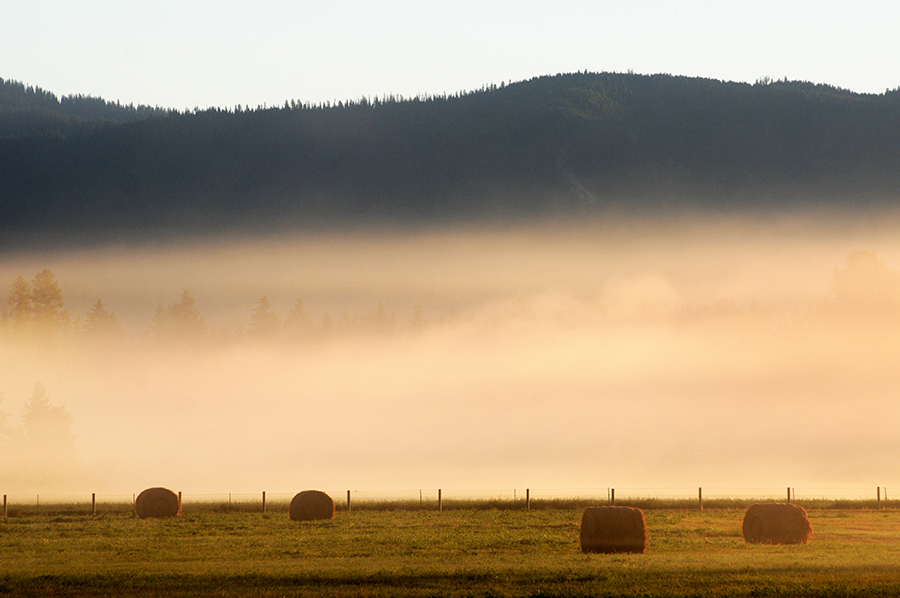The Farm Bill approved this week by Congress was widely cheered across a diverse spectrum of organizations and interests, ranging from farming and ranching groups representing operations of all sizes and types, including niche industries such as hemp, to food-access advocates, organic trade associations, conservationists, veterans, hunters, seniors and others.
Montana’s congressional delegation also responded to the bill’s passage with a unified bipartisan front, as U.S. Sens. Steve Daines and Jon Tester and Rep. Greg Gianforte all had prioritized the bill and voted in favor, each releasing statements extolling the legislation’s impacts on Montanans.
The Senate passed the bill 87-13 on Tuesday, followed by the House 369-47 on Wednesday, sending the package to President Donald Trump to sign into law.
The House decision was a reversal from its 213-198 nay vote in May due to a contingent of Republicans insisting on a separate vote to restrict immigration and Democratic opposition to the GOP’s stricter work-requirement provisions for the Supplemental Nutrition Assistance Program (SNAP), also called food stamps. The final approved bill removed the work requirements, getting Democrats onboard with a majority of Republicans.
Every five years or so, Congress takes on the Farm Bill, the nation’s foremost piece of agricultural and food policy legislation. This year’s version, formally called the Agriculture Improvement Act, is 807 pages long and costs $428 billion over five years and $867 billion over 10 years.
The legislation has far-ranging impacts on a long list of issues, including commodity support, nutrition assistance, farm credit, crop insurance, rural development, trade and international food aid, forestry, energy, research and extension activities, and horticulture.
In addition to shedding the more stringent SNAP work requirements, the final bill also left out another GOP priority calling for more aggressive forest management. Interior Secretary Ryan Zinke and the Trump Administration had pushed for so-called “categorical exclusions” to environmental review laws for logging projects, which environmentalists were happy to see nixed.
Still, the administration didn’t fight to stop the final bill even without those priorities included.
“While I feel there were missed opportunities in forest management and in improving work requirements for certain SNAP recipients, this bill does include several helpful provisions and we will continue to build upon these through our authorities,” Agriculture Secretary Sonny Perdue said. “I commend Congress for bringing the Farm Bill across the finish line and am encouraging President Trump to sign it.”
Gianforte noted that the bill did make other forestry reforms, including expansion of the Good Neighbor Authority to include counties.
“It improves how we manage our forests by empowering county governments to improve management of neighboring National Forest System lands,” Gianforte said.
Agricultural groups in Montana hailed the final bill, describing it as a substantial win for the state’s farmers and ranchers. Montana Farm Bureau Federation (MFBF) President Hans McPherson called it “an amazing week.”
“The 2018 Farm Bill not only provides assistance in times of need to the people who produce our food, but it’s a bill for all Americans, including consumers, low-income families, seniors and military veterans,” McPherson said. “This is great news for Montanans as well as for all Americans.”
MFBF National Affairs Director Nicole Rolf, who joined McPherson in Washington D.C. this week, added: “It was incredibly important to get this passed before the end of the year and now we ask the President to sign the bill into law.”
Gianforte said the the Farm Bill “takes care of Montana priorities,” including protecting Montana’s sugar beet growers and producers, supporting the Agricultural Research Service, assisting rural emergency medical-service (EMS) providers, and improving rural broadband delivery.
“This Farm Bill is a win for Montana’s farmers and ranchers who work the land to feed our country and the world,” the Republican said.
The bill legalized hemp production for industrial uses, a move championed by Senate Majority Leader Mitch McConnell, R-Kentucky and backed by Montana’s congressional delegation.
In his statement, Daines identified the Hemp Farming Act as a victory, along with provisions protecting crop insurance, securing funding for land-grant universities like Montana State University, amending commodity-support programs, providing for a vaccine bank to help responses to animal-disease outbreaks, and bolstering conservation programs such as the Environmental Quality Incentives Program and the Conservation Stewardship Program.
“I’m glad that under this Farm Bill, our farmers and ranchers are finally receiving the certainty they deserve,” Daines said.
Tester hailed many of the same provisions as Daines and Gianforte, while also identifying the reauthorization of USDA Rural Development Grants, securement of funding for the National Organic Certification Cost Share Program and the bill’s importance during a trade war that affects agriculture.
“As the escalating trade war hurts our nation’s producers, this bipartisan Farm Bill helps lessen the blow to Montana’s family farmers and ranchers,” Tester said. “It provides the kind of certainty producers can take to the bank, while protecting successful conservation tools and ensuring every hungry Montanan has access to quality food.”
Gayle Carlson, CEO of the Montana Food Bank Network, applauded funding for the Emergency Food Assistance Program (TEFAP), which she said “provides food to Montana’s food pantries and meal programs, while supporting our nation’s producers” and “helping to ensure that Montana families have access to quality, nutritious foods.”
Carlson was also pleased to see protections for SNAP.
“The bill ensures that SNAP will continue to help feed children and their parents, seniors, people with disabilities, working people with low pay and inconsistent hours, and anyone else who falls on hard times,” she said. “SNAP is and will remain a lifeline for people in our state, helping nearly 60,000 Montana households afford groceries each month.”
“As we enter the holiday season,” she added, “this is something we can all celebrate.”
